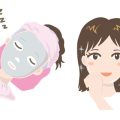Understanding the Role of Hormones in Hair Growth
Hormones play a central role in regulating the hair growth cycle, and understanding this connection is key for anyone concerned about hair health. In the United States, hormonal imbalances are increasingly recognized as significant contributors to both hair thinning and excessive shedding. Two types of hormones— androgens (such as testosterone and dihydrotestosterone, or DHT) and thyroid hormones— are especially influential when it comes to the health and vitality of your hair.
Androgens are often associated with male pattern baldness, but they can also affect women, particularly those dealing with conditions like polycystic ovary syndrome (PCOS). High levels of DHT can shrink hair follicles, leading to shorter, thinner hairs and eventually, reduced hair density. On the other hand, thyroid hormones regulate metabolism throughout the body, including in your hair follicles. An underactive thyroid (hypothyroidism) or overactive thyroid (hyperthyroidism) can disrupt the natural growth cycle, causing noticeable changes in texture and volume.
In American adults, stress, lifestyle choices, and underlying medical conditions often contribute to these hormonal imbalances. Addressing these root causes is essential for restoring healthy hair growth. By working closely with healthcare providers to identify specific hormonal issues, many people find that targeted solutions— from medical treatments to lifestyle adjustments— can make a meaningful difference in their hair’s appearance and resilience.
2. How Supplements Support Hair Health
In the journey to healthier hair, many Americans turn to dietary supplements as a way to bridge nutritional gaps and support hair growth. Popular supplements like biotin, collagen, and vitamin D are often at the center of conversations about hair health. But what does science say about their effectiveness, and how widely are they used in the United States?
Popular Hair Growth Supplements: Science and Trends
| Supplement | How It Supports Hair Growth | Evidence | American Usage Trends |
|---|---|---|---|
| Biotin (Vitamin B7) | Supports keratin production, which is essential for strong hair structure. | Deficiency can cause hair thinning; supplementation helps mainly if deficient. | Widely used; “biotin for hair” is a top-searched phrase online. |
| Collagen | Provides amino acids needed for building hair proteins and may improve scalp health. | Early research suggests improved hair thickness and strength with supplementation. | Gaining popularity, especially in powder or gummy form. |
| Vitamin D | Plays a role in follicle cycling; deficiency is linked to hair loss conditions like alopecia. | Supplementation can help restore normal hair growth if levels are low. | A common addition to multivitamins; frequently recommended by healthcare providers. |
The Role of Balanced Nutrition vs. Supplementation
Its important to note that while supplements can be helpful, they work best when supporting an already balanced diet. Most experts agree that getting nutrients from whole foods should be the first step, with supplements acting as a safety net for deficiencies or specific needs. In American culture, where busy lifestyles and processed foods are common, supplements offer a practical solution—but theyre not a cure-all. Consulting with a healthcare provider before starting any supplement regimen is always recommended to ensure youre targeting your unique needs safely and effectively.
![]()
3. Common Myths and Misconceptions
When it comes to hair growth, American media and online forums are full of bold claims and quick fixes, especially around hormones and supplements. Let’s take a closer look at some of the most widespread myths and set the record straight with science-backed facts.
Myth #1: “Taking Biotin Alone Will Guarantee Hair Growth”
Biotin is frequently marketed as a miracle solution for thinning hair. While biotin deficiency can cause hair loss, most Americans get enough through their diet, and excess supplementation rarely leads to dramatic improvements unless a deficiency is present. The reality is that hair health depends on a combination of balanced nutrition, genetics, and overall wellness—not just one vitamin.
Myth #2: “Hormonal Supplements Work the Same for Everyone”
It’s common to see influencers promoting DHT blockers or hormone-balancing supplements as universal solutions. However, everyone’s hormonal makeup is unique. For example, DHT (dihydrotestosterone) plays a significant role in male pattern baldness but isn’t always the culprit in female hair loss. Self-medicating with hormonal supplements without medical guidance can even worsen underlying conditions.
Myth #3: “Natural Means Safe and Effective”
Many believe that if a supplement is labeled ‘natural,’ it must be both safe and effective for hair growth. In reality, natural doesn’t always mean risk-free or potent. Some herbal ingredients may interact with medications or have side effects. Always consult with a healthcare professional before adding new supplements to your routine.
The Takeaway
Navigating the world of hormones and supplements for hair growth can be confusing, especially with so much misinformation circulating online. Remember: what works for one person may not work for another, and true results often require a comprehensive approach—balancing nutrition, lifestyle, and expert advice rather than relying on quick fixes or trendy products.
4. What to Ask Your Healthcare Provider
Before starting any supplements or hormonal treatments for hair growth, it’s important to have an open and honest conversation with your healthcare provider. This is especially true in the United States, where over-the-counter products are abundant but not always regulated as strictly as prescription medications. Here are key questions and concerns you should bring up during your consultation:
| Question | Why It Matters |
|---|---|
| Is my hair loss related to a hormonal imbalance? | Identifying the root cause helps determine if hormonal therapy or another treatment is appropriate. |
| What tests should I take before starting treatment? | Blood work or scalp analysis can clarify deficiencies or imbalances that need addressing. |
| Are there risks or side effects with these supplements/treatments? | Certain supplements and hormones can interact with medications or cause unwanted effects. |
| How will this affect my existing health conditions? | If you have thyroid issues, diabetes, or autoimmune diseases, some therapies may not be suitable. |
| What brands or formulations do you recommend? | Not all supplements are created equal; your provider can help you choose safe, effective options available in the U.S. market. |
| How long before I see results? | Setting realistic expectations will help avoid disappointment and unnecessary changes in your regimen. |
Additional Tips:
- Bring a list of all current medications and supplements: This helps your provider spot potential interactions.
- Mention family history: Some forms of hair loss are genetic, which might influence your treatment plan.
- Ask about ongoing monitoring: Regular check-ins ensure that treatments are working and safe for you long-term.
Taking the time to discuss these topics with your healthcare provider ensures you make informed decisions tailored to your unique needs, keeping your safety and well-being at the forefront of your hair growth journey.
5. Lifestyle Tips for Healthy Hair
When it comes to supporting hair growth, your daily habits can make a significant difference. In the context of American lifestyles, incorporating mindful choices into your routine can help maintain hormonal balance and maximize the benefits of supplements. Below are some culturally relevant tips on diet, stress management, and everyday practices for stronger, fuller hair.
Eat a Balanced, Nutrient-Rich Diet
In the U.S., it’s common to rely on convenience foods, but prioritizing whole foods is key for hair health. Focus on lean proteins like grilled chicken or wild-caught salmon, healthy fats from avocados or nuts, and plenty of colorful fruits and vegetables. These foods provide essential nutrients such as biotin, iron, vitamin D, and omega-3 fatty acids that are linked to healthy hair growth.
Don’t Skip Breakfast
A nutritious breakfast jump-starts your metabolism and supports hormone production throughout the day. Consider options like Greek yogurt with berries or a veggie omelet—these combine protein and vitamins needed for strong hair follicles.
Manage Stress Proactively
High stress levels can disrupt hormones and contribute to hair thinning. While work and life in America can be fast-paced, making time for relaxation is crucial. Try mindfulness practices such as meditation apps (like Calm or Headspace), regular yoga sessions at your local studio, or simply enjoying a walk outdoors. Prioritizing sleep—aiming for 7-8 hours nightly—also plays a vital role in balancing cortisol and promoting hair renewal.
Adopt Gentle Hair Care Habits
With frequent blow-drying, heat styling, and chemical treatments being popular in the U.S., it’s important to protect your strands. Use sulfate-free shampoos, avoid excessive brushing when wet, and let your hair air dry when possible. Choose protective hairstyles that minimize tension and breakage.
Stay Hydrated
Drinking enough water is often overlooked but is essential for both scalp health and overall well-being. Keep a reusable water bottle handy throughout your day as a simple reminder.
Create a Consistent Self-Care Routine
Building habits that support hormonal harmony—such as regular exercise, balanced meals, and stress reduction—not only benefits your hair but also enhances your overall quality of life. Remember: small changes add up over time, leading to healthier hair growth and greater confidence.
6. When Medical Intervention Is Needed
While many people experience hair thinning or shedding due to temporary factors like stress, hormonal shifts, or nutritional imbalances, it’s important to recognize when these issues might signal a deeper health concern. In the context of hormones and supplements, sometimes persistent or severe hair loss could be a sign of an underlying medical condition that requires professional evaluation.
Warning Signs to Watch For
If you notice sudden, patchy, or excessive hair loss—especially if accompanied by other symptoms such as unexplained weight changes, fatigue, or changes in your skin and nails—it’s time to pay closer attention. Conditions such as thyroid disorders (hypothyroidism or hyperthyroidism), autoimmune diseases like alopecia areata, or even hormonal imbalances related to PCOS (Polycystic Ovary Syndrome) can manifest through significant changes in hair growth.
When to Seek Help from U.S. Healthcare Professionals
If your hair loss is progressing rapidly, causing distress, or not improving with over-the-counter supplements and lifestyle adjustments, don’t hesitate to reach out to a healthcare provider. In the United States, board-certified dermatologists and primary care physicians are well-equipped to diagnose the root causes of hair disorders. They may recommend blood tests to check hormone levels, screen for nutritional deficiencies, or suggest other diagnostic tools tailored to your individual needs.
The Importance of Personalized Care
Remember that what works for one person may not work for another. Seeking support from a U.S.-based healthcare professional ensures you get advice that considers your medical history, current medications, and specific lifestyle factors. Early intervention can make a significant difference—not just for your hair health but also for your overall well-being.
If you’re concerned about persistent hair loss, trust your instincts and consult with a qualified provider. Taking action sooner rather than later helps protect both your confidence and your long-term health.

